Gardeners Canonbury: Nurturing Green Spaces
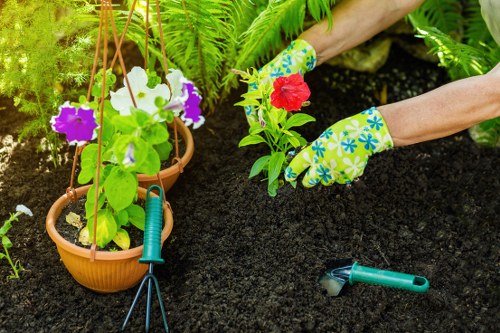
Canonbury, a picturesque area in North London, is renowned for its charming architecture and vibrant community. Nestled amidst this tranquil setting are dedicated gardeners who play a crucial role in maintaining and enhancing the green spaces that define the neighborhood.
These skilled professionals bring expertise and passion to every garden they tend, ensuring that Canonbury remains a haven of natural beauty. Whether it's a private garden, community park, or public space, gardeners in Canonbury are committed to creating and sustaining lush, inviting environments.
In this article, we explore the various aspects of gardening in Canonbury, the services offered by local gardeners, and the surrounding areas that contribute to the area's unique charm.
The Importance of Gardeners in Canonbury
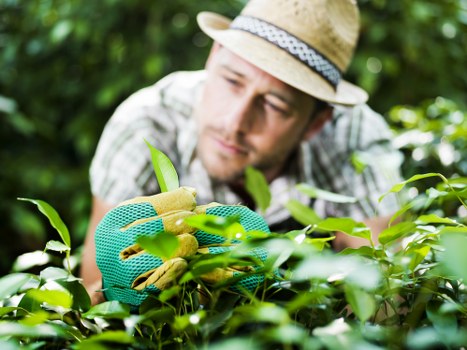
Gardeners in Canonbury are more than just landscapers; they are stewards of the environment. Their work ensures that green spaces are not only aesthetically pleasing but also environmentally sustainable. By implementing eco-friendly practices, such as composting and water conservation, they help maintain the ecological balance of the area.
Moreover, these gardeners contribute to the community's well-being. Green spaces provide residents with places to relax, socialize, and engage in outdoor activities, promoting mental and physical health. Well-maintained gardens also enhance property values and the overall appeal of the neighborhood.
In addition to maintenance, gardeners in Canonbury often participate in community projects, school programs, and local events, fostering a sense of community and shared responsibility for the environment.
Services Offered by Canonbury Gardeners
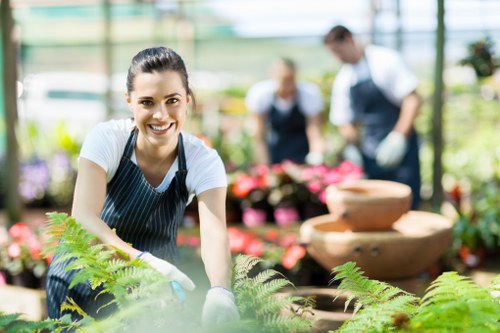
Gardeners in Canonbury offer a wide range of services tailored to meet the diverse needs of residents and businesses. Some of the key services include:
- Garden Design and Planning: Creating customized garden layouts that reflect the client's vision and suit the local climate and soil conditions.
- Planting and Maintenance: Selecting appropriate plants and ensuring their healthy growth through regular care, including watering, pruning, and fertilizing.
- Lawn Care: Maintaining green, healthy lawns by mowing, aerating, and treating for pests and diseases.
- Hardscaping: Installing features such as patios, walkways, fences, and garden structures to enhance functionality and aesthetics.
- Irrigation Systems: Designing and installing efficient watering systems to ensure optimal plant hydration while conserving water.
Tools and Techniques Used by Gardeners

Modern gardeners in Canonbury utilize a variety of tools and techniques to ensure the health and beauty of gardens. These include:
- Organic Gardening: Emphasizing the use of natural fertilizers and pest control methods to promote sustainable growth.
- Mulching: Applying organic or inorganic materials to soil surfaces to retain moisture, suppress weeds, and regulate soil temperature.
- Pruning and Trimming: Regularly cutting plants to maintain their shape, encourage growth, and remove dead or diseased parts.
- Composting: Recycling organic waste into nutrient-rich compost to improve soil fertility.
- Integrated Pest Management (IPM): Combining biological, cultural, and chemical tools to manage pests in an environmentally friendly manner.
Eco-Friendly Practices in Canonbury Gardens
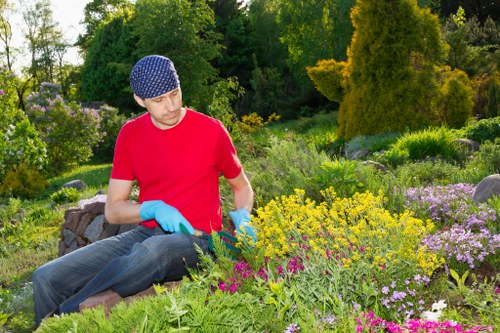
Sustainability is at the heart of gardening practices in Canonbury. Gardeners prioritize eco-friendly methods to minimize environmental impact and promote biodiversity. Some of these practices include:
- Rainwater Harvesting: Collecting and storing rainwater for garden irrigation, reducing reliance on municipal water sources.
- Native Plant Selection: Choosing plants native to the region, which are better adapted to local conditions and require less maintenance.
- Pollinator Gardens: Creating habitats that attract bees, butterflies, and other pollinators, supporting local ecosystems.
- Solar-Powered Lighting: Installing garden lights powered by solar energy to reduce electricity consumption.
- Recycled Materials: Utilizing recycled or reclaimed materials for garden structures and decorations.
Local Flora and Fauna in Canonbury
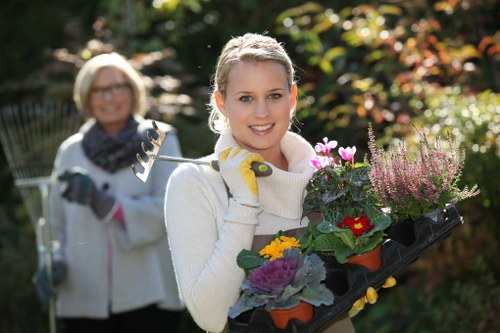
The gardens of Canonbury are home to a diverse array of plants and wildlife. Gardeners work diligently to support this biodiversity by selecting a variety of plant species that provide food and habitat for local fauna.
Common plants include ornamental flowers, shrubs, and trees that add color and texture to gardens. Additionally, vegetable and herb gardens are popular, allowing residents to grow their own produce.
Wildlife such as birds, butterflies, and beneficial insects thrive in these gardens, contributing to a balanced ecosystem. Gardeners also create habitats like birdhouses and insect hotels to further support local wildlife.
Seasonal Gardening in Canonbury
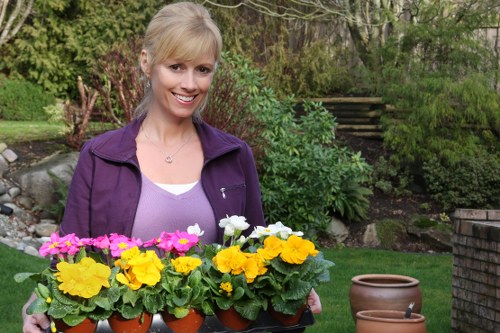
Canonbury gardeners adapt their practices to the changing seasons, ensuring that gardens remain vibrant and healthy year-round. Seasonal tasks include:
- Spring: Preparing beds, planting new shoots, and pruning trees before new growth begins.
- Summer: Maintaining plant health through regular watering, weeding, and harvesting produce.
- Autumn: Clearing fallen leaves, planting bulbs for the next spring, and protecting plants from early frosts.
- Winter: Pruning dormant plants, mulching to protect roots, and planning for the upcoming gardening season.
Community Gardens in Canonbury
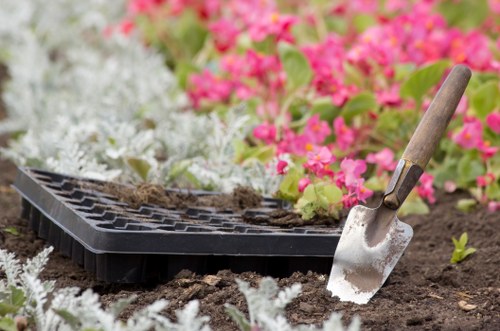
Community gardens play a significant role in Canonbury, providing spaces where residents can collaborate on gardening projects, share resources, and enjoy the outdoors together. These gardens foster a sense of community and encourage sustainable living practices.
Gardeners in Canonbury often manage these shared spaces, organizing events, workshops, and collective planting activities. Community gardens also serve as educational hubs, teaching sustainable gardening techniques and environmental stewardship.
Participating in community gardening not only beautifies the area but also strengthens social bonds among neighbors, making Canonbury a more cohesive and resilient community.
Local Gardening Events and Workshops
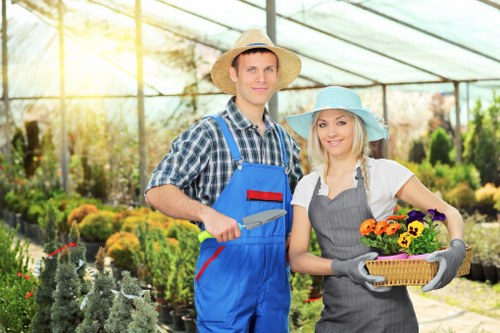
To promote gardening knowledge and community engagement, Canonbury hosts various events and workshops throughout the year. These include:
- Planting Days: Community-led initiatives where residents come together to plant trees, flowers, and vegetables.
- Workshops: Educational sessions on topics like organic gardening, composting, and pest management.
- Garden Tours: Guided tours showcasing beautiful gardens in Canonbury, providing inspiration and ideas for local gardeners.
- Seed Swaps: Events where gardeners can exchange seeds, promoting diversity and the sharing of unique plant varieties.
- Harvest Festivals: Celebrations marking the end of the growing season, featuring produce from local gardens and family-friendly activities.
Challenges Faced by Gardeners in Canonbury
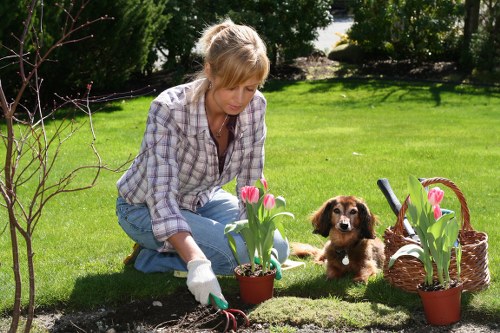
While gardening in Canonbury offers numerous rewards, it also presents certain challenges. These include:
- Limited Space: Many gardens in Canonbury are compact, requiring creative solutions to maximize space and functionality.
- Soil Quality: Ensuring healthy soil through proper fertilization and composting is essential for plant growth.
- Pest Control: Managing pests in an eco-friendly manner to protect plants without harming beneficial insects.
- Weather Variability: Adapting gardening strategies to cope with unexpected weather changes, such as heavy rains or droughts.
- Regulatory Constraints: Navigating local regulations and property restrictions when designing and maintaining gardens.
Innovative Gardening Solutions in Canonbury
To overcome these challenges, gardeners in Canonbury employ innovative solutions, such as:
- Vertical Gardening: Utilizing vertical spaces like walls and fences to grow plants, maximizing limited ground space.
- Raised Beds: Creating elevated planting areas to improve soil drainage and accessibility.
- Container Gardening: Growing plants in pots and containers, allowing flexibility and mobility.
- Permaculture Principles: Designing gardens that mimic natural ecosystems, promoting sustainability and resilience.
- Smart Irrigation Systems: Implementing technology-driven watering solutions that optimize water usage based on real-time needs.
Local Flora: Plants Commonly Found in Canonbury Gardens
Canonbury's gardens feature a variety of plants that thrive in the local climate. Some common species include:
- Roses: Valued for their beauty and fragrance, roses are a staple in many Canonbury gardens.
- Lavender: Popular for its soothing scent and attractive purple blooms.
- Hostas: Shade-tolerant plants known for their lush foliage and delicate flowers.
- Boxwood: Evergreen shrubs used for hedges and ornamental borders.
- Herbs: Including basil, thyme, and rosemary, cultivated for culinary and medicinal uses.
Local Fauna: Wildlife in Canonbury Gardens
The vibrant gardens of Canonbury attract a variety of wildlife, contributing to the area's biodiversity. Common fauna include:
- Birds: Species such as robins, sparrows, and finches are frequently seen fluttering around gardens.
- Butterflies: Delicate butterflies add color and life, especially in gardens rich with flowering plants.
- Bees: Essential pollinators that play a critical role in the health of gardens.
- Ladybugs: Beneficial insects that help control pest populations naturally.
- Rabbits: Occasionally found in gardens, requiring gardeners to manage their presence carefully.
Tools Every Canonbury Gardener Should Have
To maintain beautiful gardens, Canonbury gardeners rely on a range of essential tools, including:
- Pruning Shears: For trimming and shaping plants with precision.
- Garden Fork: Useful for turning soil and aerating planting beds.
- Spade: Ideal for digging and transplanting plants.
- Hoe: Essential for weeding and cultivating the soil.
- Watering Can: Necessary for providing plants with adequate hydration.
Choosing the Right Garden Plants for Canonbury
Selecting the appropriate plants is vital for a thriving garden in Canonbury. Factors to consider include:
- Climate: Understanding the local climate helps in choosing plants that can withstand temperature fluctuations and seasonal changes.
- Soil Type: Different plants have varying soil requirements; testing and amending soil can improve plant health.
- Sunlight: Assessing the amount of sunlight each garden area receives ensures plants are placed in suitable locations.
- Water Needs: Grouping plants with similar watering needs simplifies garden maintenance.
- Aesthetic Goals: Considering the desired look and feel of the garden guides plant selection for color, texture, and form.
Best Practices for Sustainable Gardening in Canonbury
Sustainable gardening practices help preserve Canonbury's natural beauty while minimizing environmental impact. Key practices include:
- Organic Fertilizers: Using natural fertilizers to enrich the soil without harmful chemicals.
- Composting: Recycling kitchen and garden waste into nutrient-rich compost for plants.
- Water Conservation: Implementing drip irrigation and mulching to reduce water usage.
- Biodiversity: Planting a variety of species to support diverse ecosystems.
- Recycling: Reusing materials in garden projects to reduce waste.
Impact of Gardeners on Canonbury's Community
Gardeners in Canonbury significantly influence the community by fostering a sense of pride and ownership among residents. Their efforts lead to:
- Enhanced Aesthetics: Beautiful gardens improve the visual appeal of the neighborhood, making it more attractive to visitors and potential residents.
- Community Engagement: Shared gardening projects encourage collaboration and strengthen community bonds.
- Environmental Benefits: Well-maintained green spaces contribute to cleaner air, reduced heat islands, and improved biodiversity.
- Educational Opportunities: Gardeners provide valuable knowledge through workshops and hands-on experiences, empowering residents to cultivate their own gardens.
- Economic Advantages: Attractive gardens can boost local businesses by attracting more foot traffic and enhancing property values.
Top 15 Nearby Areas to Canonbury for Garden Enthusiasts
Canonbury is surrounded by several charming neighborhoods, each offering unique features for gardeners:
- Finsbury Park: Just a short walk away, it boasts expansive green spaces perfect for large-scale gardening projects.
- Crouch End: Known for its community gardens and vibrant plant markets.
- Islington: Offers a mix of public gardens and private green terraces.
- Highbury: Features well-maintained residential gardens and parks.
- Hackney: Home to innovative urban gardening initiatives and green rooftops.
- Barnsbury: Close to Canonbury, it has several tranquil gardens and green walks.
- Stroud Green: Offers community-driven garden projects and sustainable gardening workshops.
- Tufnell Park: Known for its botanical diversity and public green spaces.
- Archway: Features urban gardens and easy access to nearby parks.
- Fortess Road: A quiet area with private and community gardens.
- Islington Green: A central park area with beautiful landscaping and garden areas.
- London Fields: Offers vibrant community gardens and annual gardening events.
- New River: Known for its scenic walks and riverside gardens.
- Seven Sisters: Features both public and private gardens with diverse plant species.
- Whittington: Close to Canonbury, it has several green spaces ideal for gardening enthusiasts.
Tips for Hiring a Gardener in Canonbury
Finding the right gardener in Canonbury ensures that your garden receives the care and attention it deserves. Here are some tips:
- Experience: Look for gardeners with a proven track record in maintaining gardens similar to yours.
- References: Ask for testimonials or speak with previous clients to gauge satisfaction levels.
- Services Offered: Ensure the gardener provides the specific services you need, whether it's design, maintenance, or landscaping.
- Certifications: Check for relevant qualifications or memberships in professional gardening associations.
- Compatibility: Choose a gardener whose style and approach align with your vision for the garden.
Conclusion
Gardeners in Canonbury play an indispensable role in maintaining the area's lush and inviting green spaces. Their expertise, dedication, and sustainable practices not only enhance the beauty of the neighborhood but also contribute to the community's overall well-being.
Whether you're a seasoned gardener or a novice looking to cultivate your first garden, the professionals in Canonbury are equipped to help you achieve your gardening goals. Embracing their services ensures that Canonbury remains a vibrant and green sanctuary in the heart of London.
Frequently Asked Questions
1. How can I find a reputable gardener in Canonbury?
Start by asking for recommendations from neighbors or checking local online directories. Additionally, contacting gardening associations or visiting community gardens can help you connect with experienced professionals.
2. What services do Canonbury gardeners typically offer?
Services include garden design and planning, planting and maintenance, lawn care, hardscaping, irrigation system installation, and eco-friendly gardening practices.
3. Are there community gardening projects in Canonbury?
Yes, Canonbury has several community gardens where residents collaborate on gardening projects, share resources, and participate in events and workshops.
4. What plants are best suited for Canonbury's climate?
Plants such as roses, lavender, hostas, boxwood, and various herbs thrive well in Canonbury's climate. It's essential to choose plants that are native or well-adapted to the local conditions.
5. How can I make my garden more environmentally friendly?
Implementing practices like composting, using organic fertilizers, conserving water through efficient irrigation systems, planting native species, and creating habitats for pollinators can make your garden more eco-friendly.